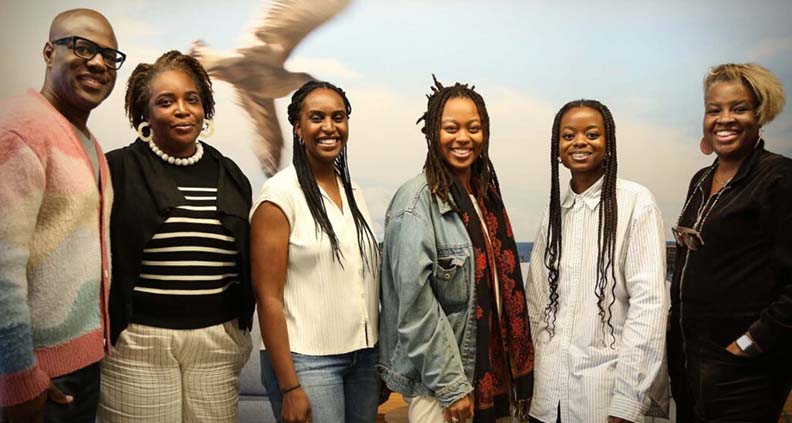Interview: Jill James Teaches Creatives How to Be Better Businesspeople
If you’re as deeply immersed in the particulars of the independent film world as we are, you’ve probably sensed a sort of crisis of career sustainability recently boiling over. More and more, indie makers across all disciplines are finding it difficult to build protections around the financial aspects of their work. Why, it’s almost (almost!) like budding auteurs are flushed out of the soft surroundings of film school into the real world with no training in basic business fundamentals–the kind any independent contractor might need, as a matter of course. Luckily there are folks stepping in to provide a framework for filmmakers to thrive, both economically and creatively.
For nearly a decade, Jill James has provided financial guidance to self-funded business Founder/CEOs and entrepreneurs as a strategy and operations consultant specializing in purpose-driven creative ventures. And recently, she’s been lending her talents to Film Independent Artist Development Fellows, working with Fi’s Imaginar and Amplifier programs to advise our cohorts on the knotty process of establishing their creative efforts as properly recognized (and rewarded!) business entity.
We recently spoke to James about the difference between filmmakers and most “normal” entrepreneurs, the importance of bifurcating your financial identity, collaborating with Film Independent and more. Here’s the conversation:
JILL JAMES

Tell us a little bit about the basics. How’d you begin doing this sort of work?
James: I started my business strategy company about eight years ago. I primarily work with women founders. Typically first time entrepreneurs who are in self-funded businesses, but we have clients of all kinds. Really what I do is help people figure out what they want their businesses to be. Especially if [they] want it to be purpose-driven. What they need to have sustained profitability to get what they need out of the business to make it worth their while. A lot of people think of me as a finance person because we use a lot of numbers, but it’s really strategy and operations. I think of it as kind of a language. Like ,you can’t live in Italy and not speak Italian, right?
And at what point did you start working with filmmakers?
James: I actually went to college with Angela [Lee, Film Independent Director of Artist Development] and you know, she’s a producer herself. We were having some conversations when she took over the Artist Development programs. She really advocated for why we need a business conversation within all of the other development we do around entertainment and industry career-building. Most [filmmakers] are self-employed and intend to stay that way. So we’re giving them the information and tools that they need, just sort of basic infrastructure. Like: how to set up their company, how to pay themselves, how to work with an accountant, how retirement works or what studios mean when they say this or that. There’s a lot of stuff thrown over the wall at creatives and they’re just left on their own to figure it out.

When you’re working with Film Independent’s Amplifier and Imaginar Fellows what does that typically look like?
James: The way we’ve done it the last couple of cohorts is, we have three quarterly times where I join the cohort meeting and have a prepared presentation on some of some important topics. Right out of the gate we talk about what the different incorporation types are, why you might use them and the basics of separating your person from your business stuff. Then we have one-on-one sessions. The Fellows can bring any questions they want–business or personal–that they want to work on. And we work on those, one on one, over the course of the year.
If there’s anything I know about filmmakers, it’s that they generally don’t consider themselves finance people. What are some of the unique challenges being an independent filmmaker presents as opposed to being an entrepreneur in another area?
James: You’re asked to be very sophisticated about business from day one. There’s a big leap forward demanded for people in the entertainment field. But they’re not given the tools and information that they need to think of themselves as a small business, or to set themselves up with the operating infrastructure they need. No one really tells you how to do it. It doesn’t have to be super complicated, but you do need that checklist of things to do. The other piece is that a lot of people are afraid that having a business structure around their operations will make them less creative. One of the things we really work on [with clients] is thinking, “How can we put the business administration piece in a box to free you up, so that it isn’t always on your mind when you’re going off to be creative. How can you be that sophisticated business operator so that the other 4/5 of the time you can go back to being creative?”

Let’s say I’m starting from zero. I’ve only ever been to film school, no business training at all. What do I need to do to put myself in a good position so I’m not making mistakes early on that will cascade down throughout the rest of my project and/or career?
James: I think the number one thing, from day one, is to realize the difference between the money you’re spending on you, the person, and you, the business. That means keeping a separate record of what you’re spending on all side business expenses. Tracking what you’ve spent on developing your projects. Just clearly getting in your mind that there’s me, the regular person who has to eat and pay rent, and then there’s me, the business that performs a function. Some people do that by having two credit cards. They only put business expenses on one. In a single bank account everything just sort of gets mushed together and you may struggle later to figure it out. It makes a lot of sense when you explain it, but it’s not so easy early on when you’re scrambling early in your career, paying a little out here and little out there. It can add up and get confusing.
What do you think makes filmmakers unique? What are some of the virtues of working with people in this field?
James: I find that filmmakers are very purpose-driven and socially active. There’s usually some important reason they want to put their work out into the world–a change they want to see in the world through their work. There’s often this vision that the art is the vehicle for this other sort of vision they have centered around their hopes for the world. It’s been really interesting, particularly with the filmmakers at Film Independent. It’s important to have people on your business team who support that.
For over 40 years, Film Independent has helped filmmakers get their projects made and seen. The nonprofit organization’s core mission is to champion creative independence in visual storytelling and support a community of artists who embody diversity, innovation and uniqueness of vision.
Film Independent Members watch nominees and vote for the winners of the Spirit Awards. To become a Member of Film Independent and make your vote count for next year’s 40th Annual Spirit Awards, just click here. To support our mission with a donation, click here.